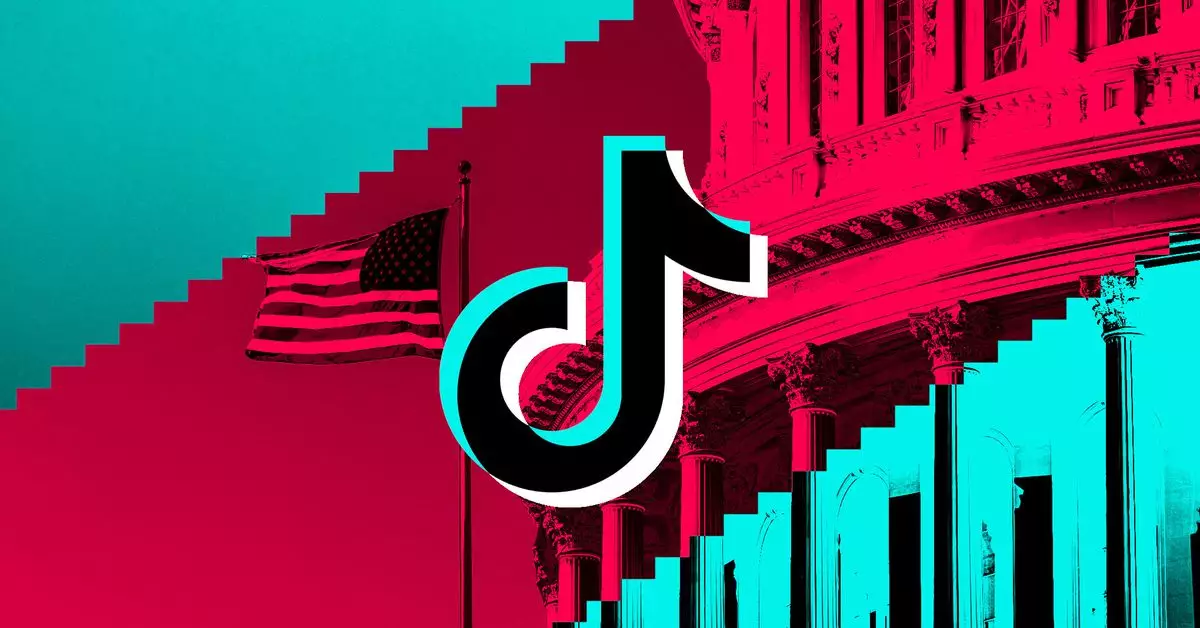The ongoing saga of TikTok, the popular social media platform owned by Chinese parent company ByteDance, has garnered significant attention due to its entangled relationship with U.S. government policies. Recent developments, particularly an executive order issued by President Donald Trump, have reignited debates around national security and corporate governance. The order calls upon the Department of Justice (DOJ) to refrain from enforcing a previously enacted rule mandating ByteDance to divest its ownership of TikTok or face a ban in the United States.
Trump’s executive order serves as a strategic extension of deadlines set by the bipartisan Protecting Americans from Foreign Adversary Controlled Applications Act. The legislation aimed to safeguard U.S. users’ data against foreign threats, specifically targeting companies like TikTok that pose potential risks due to their connections to the Chinese government. By instructing the Attorney General not to enforce compliance with this law for a period of 75 days, Trump appears to be creating a breathing space for negotiations or an alternative path forward.
The order not only undercuts potential penalties for American companies involved with TikTok, such as Apple and Google, but also raises legal questions about the extent of presidential powers in circumventing established laws. Critics argue that it undermines the very foundation of a bipartisan legislative effort aimed at preserving national security.
Trump’s directive to the DOJ is steeped in legal ambiguity. The order theoretically allows for a temporary pause in enforcement but skirts the fundamental issue that a law cannot simply be nullified by an executive decree. Following the January 19th enactment of the law, which includes provisions for a 90-day extension if ByteDance announced a sale to a non-foreign adversary, confusion exists regarding the process moving forward. As of now, no announcement of an impending sale has been made, and the legality of extending deadlines beyond the set time frame remains questionable.
Experts warn that TikTok’s connectivity to its parent company, ByteDance, continues to pose significant liabilities. The executive order does not absolve service providers of responsibility; they may still face fines upwards of $850 billion, depending on interpretations of the law and the terms of their engagements with TikTok. In this context, Trump’s assurances provide flimsy accountability for companies that might otherwise be afraid of substantial repercussions from their involvement with the app.
Political Repercussions and Public Perception
Trump’s administration faces a complicated political landscape as he attempts to balance national security concerns with the economic implications of severing ties with a platform that boasts millions of American users. The executive order, ironically, contradicts previous actions he took during his first term, where he sought to ban the application altogether. His recent encouragement for companies to engage with TikTok may serve to placate business interests but raises questions about his commitments to public safety.
Public perception complicates matters further; confidence in American technological safeguards is at stake. Consumers with a penchant for TikTok might be reluctant to abandon the platform, but fears of data exploitation could stymie their usage. Trump’s approach risks alienating voters who prioritize digital privacy and national security above economic benefits.
The Future of TikTok in the U.S.
Despite the executive order, TikTok’s future remains precarious. The absence of a clear path forward, alongside the government’s existing legal frameworks, paints an unpredictable picture. The possibility of a “joint venture” as suggested by Trump, wherein the U.S. government could acquire a 50% stake in TikTok, adds yet another layer of complexity. How this arrangement would function is dubious and further muddles the clarity of the issue.
President Trump’s recent maneuvering surrounding the TikTok issue illustrates a broader struggle between national security efforts and economic interests. As the saga continues, rapid developments are likely to unfold, requiring close scrutiny from legal experts, businesses, and the public alike. The intersection of social media and governance may likely lead to long-term implications for how such platforms are managed and regulated within the United States.

